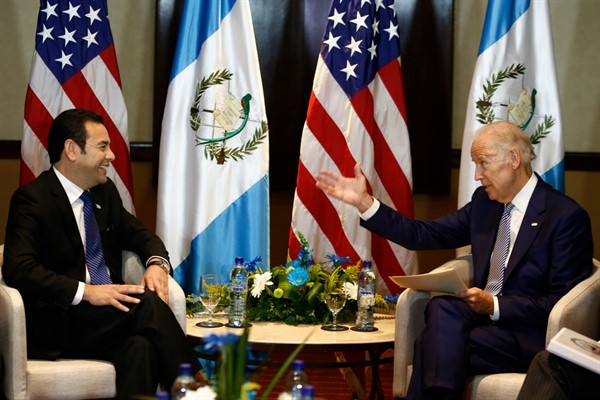From the start of the 2016 election campaign, it was all too clear that a Donald Trump presidency would bring dramatic and destabilizing changes to U.S. foreign policy, especially in Latin America. Candidate Trump publicly pummeled the region, fulminating about “rapists” and drug traffickers crossing from Mexico, and vowing to build a wall to keep Central American migrants from “invading” the United States.
The rhetoric was jarring in itself, but it was even more startling because it represented such a sharp departure from President Barack Obama’s administration, when even the most critical measures or sanctions came wrapped in diplomatic language. Will U.S. policy in the region return to that if former Vice President Joe Biden defeats Trump next month?
If Biden wins the presidency, U.S. policy toward Latin America is certain to change in both tone and substance. Relations will unfold against an unspoken backdrop of great-power competition, since Washington’s role in the region has been shrinking, while China, Russia and even Iran widen their footprints. Ties with Latin America are more than a hemispheric matter now; they are a global geopolitical concern.

